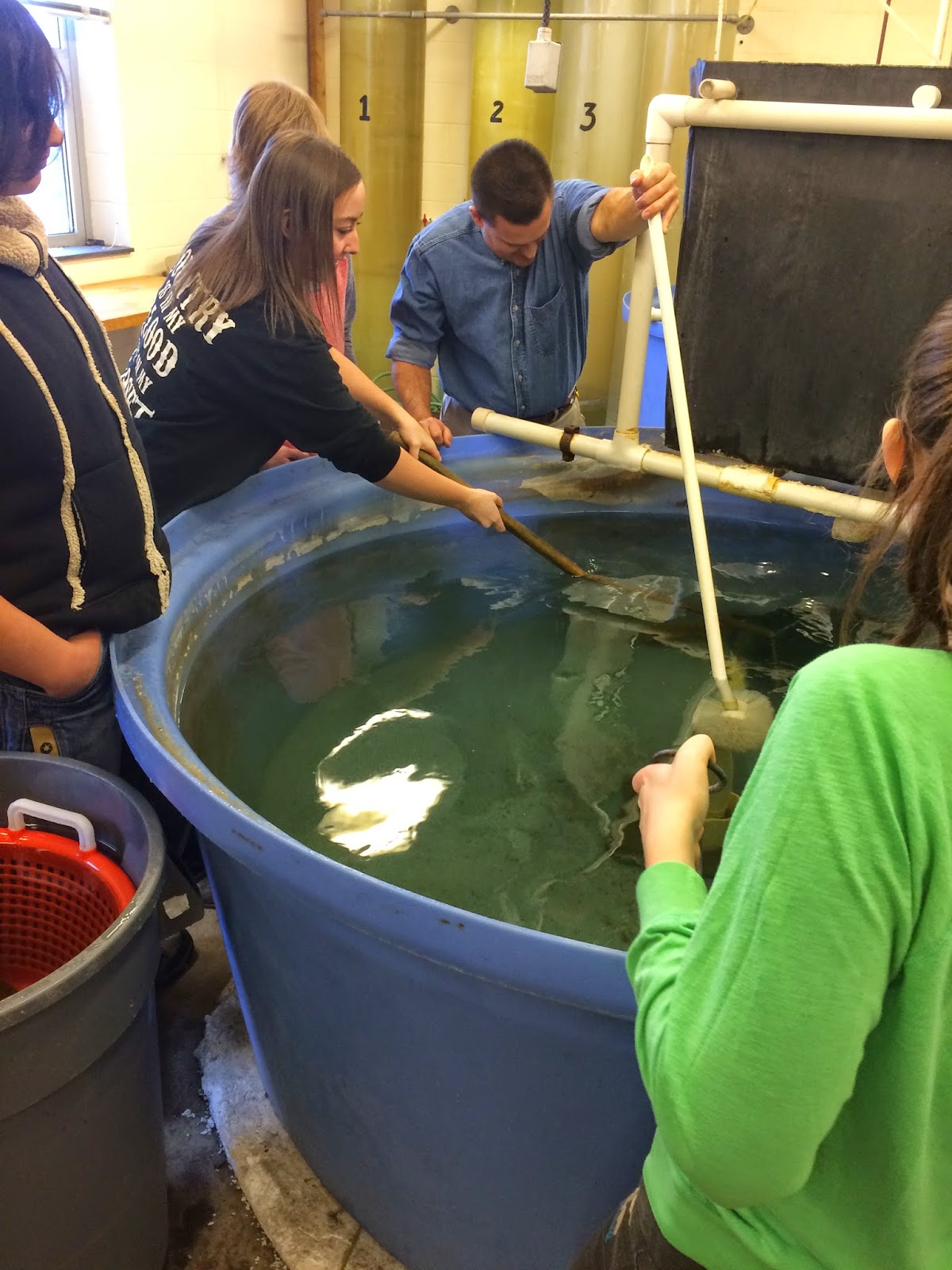 On Friday, February 27th, 2015, I observed fellow
student teacher Megan Keller at Manheim Central. Megan is student teaching with
Mrs. Heather Anderson, who is also the wife of my cooperating teacher! I
observed Megan teach two classes and she informed me she will be picking up her
last class on Monday. Manheim has block scheduling, similar to Elizabethtown. Megan
has her planning/prep period first block. During second block, she teaches an
intro to agriculture course where she utilizes CASE ANFR curriculum to teach.
There are 16 students in the class. During third block, Megan teaches
agricultural mechanics. There are 19 students in the class, all of which are
boys. After third block, Megan and Mrs. Anderson eat lunch. Fourth block is the
agriecology class, which is the course Megan will be picking up on Monday. She
will start out with a populations unit. This class has 24 students.
On Friday, February 27th, 2015, I observed fellow
student teacher Megan Keller at Manheim Central. Megan is student teaching with
Mrs. Heather Anderson, who is also the wife of my cooperating teacher! I
observed Megan teach two classes and she informed me she will be picking up her
last class on Monday. Manheim has block scheduling, similar to Elizabethtown. Megan
has her planning/prep period first block. During second block, she teaches an
intro to agriculture course where she utilizes CASE ANFR curriculum to teach.
There are 16 students in the class. During third block, Megan teaches
agricultural mechanics. There are 19 students in the class, all of which are
boys. After third block, Megan and Mrs. Anderson eat lunch. Fourth block is the
agriecology class, which is the course Megan will be picking up on Monday. She
will start out with a populations unit. This class has 24 students.
Megan seems
to have built relationships with her students and gets along with them well.
She does not have many discipline issues in her classes. She seems at ease in
front of her students and exhibits confidence while teaching. She walked around
and worked with her students as they worked on their speeches in second block.
She provided suggestions and answered questions. She did the same thing in
third block as students worked on constructing their bird houses. Megan works
well with Mrs. Anderson and I think that Manheim was the right fit for her!
 I talked
with Megan during first block about her student teaching experience so far. One
thing that Megan has been struggling with is trying not to “spoon feed” her
students so to speak. In her ag mechanics class, she has a few students who
expect her to walk them through every assignment and always ask what they are
supposed to do instead of reading directions. This has taught her to learn the
value of patience. On the other hand, Megan explained that Manheim has been a
great fit for her. She enjoys her students and the faculty at the high school.
She works well with Mrs. Anderson and the two of them have grown closer as this
whole experience has progressed.
I talked
with Megan during first block about her student teaching experience so far. One
thing that Megan has been struggling with is trying not to “spoon feed” her
students so to speak. In her ag mechanics class, she has a few students who
expect her to walk them through every assignment and always ask what they are
supposed to do instead of reading directions. This has taught her to learn the
value of patience. On the other hand, Megan explained that Manheim has been a
great fit for her. She enjoys her students and the faculty at the high school.
She works well with Mrs. Anderson and the two of them have grown closer as this
whole experience has progressed.
Overall, I
had a great experience observing Megan today. It was an awesome opportunity to
see another ag program in the state. Manheim Central has three ag teachers:
Heather Anderson, Deb Seibert, and Johnathon Werning. I am used to programs
with two teachers so this visit was a little different. Manheim is classified
as an animal science, ag production, and ag mechanics program. This is also
different from my home high school and current teaching site. Manheim has two
classrooms, a woodworking shop, and a welding shop. I have not had experience
with a woodworking shop as part of the ag program, this has always been in the
technology department. Manheim also has gerbils and turtles in their classroom.
I have not had experience with pets in the classroom at my home high school or
in Mr. Anderson’s room. It was great to see such diversity in ag programs as
well as give me ideas for when I have my own ag program someday!




















